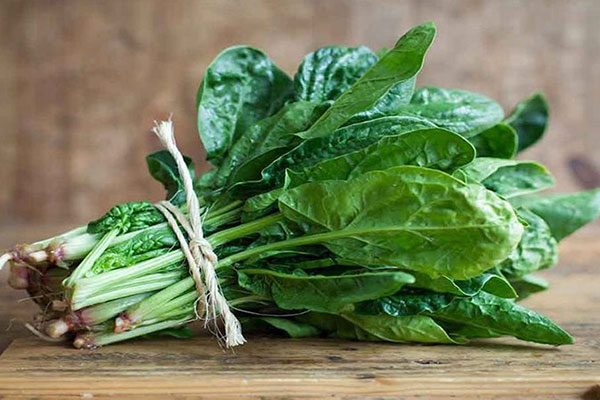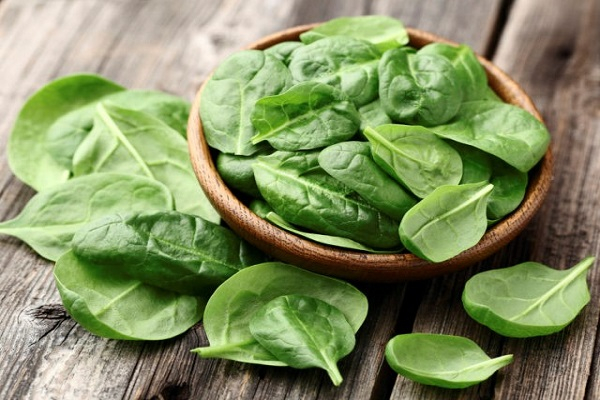Spinach

Spinach is a great source of iron no matter how you prepare it. 1 cup of this nutritious green (frozen and then boiled) has 3.72 mg of iron, as well as some protein, fiber, calcium, and vitamins A and E, according to the USDA. Calcium is required for strong bones, according to the Mayo Clinic; vitamin A is good for your vision and immunity, according to the Mayo Clinic; and vitamin E is good for your vision, blood, brain, and skin, according to the Mayo Clinic. According to the USDA, the same serving size of raw spinach, which is more loosely packed than cooked spinach, contains nearly 1 mg of iron, providing part of the mineral.
While the leafy green has a bad reputation for taste, especially among children, it's a simple ingredient to sneak into recipes undetected for a secret iron boost (and, as a non-heme iron source, it's especially beneficial when paired with foods high in vitamin C, such as some vegetables, according to Anzlovar and research). Largeman-Roth says, "I enjoy incorporating sautéed spinach in vegetable lasagna." "It's also good in little frittatas, which my kids really like." If the idea of eating spinach in a dish doesn't appeal to you, try it in a naturally sweet fruit smoothie.











